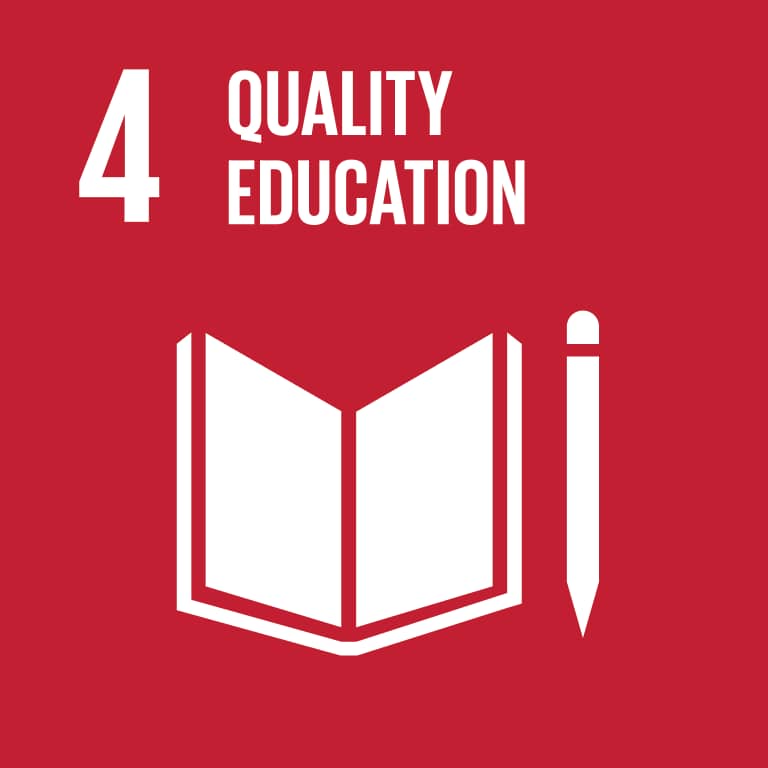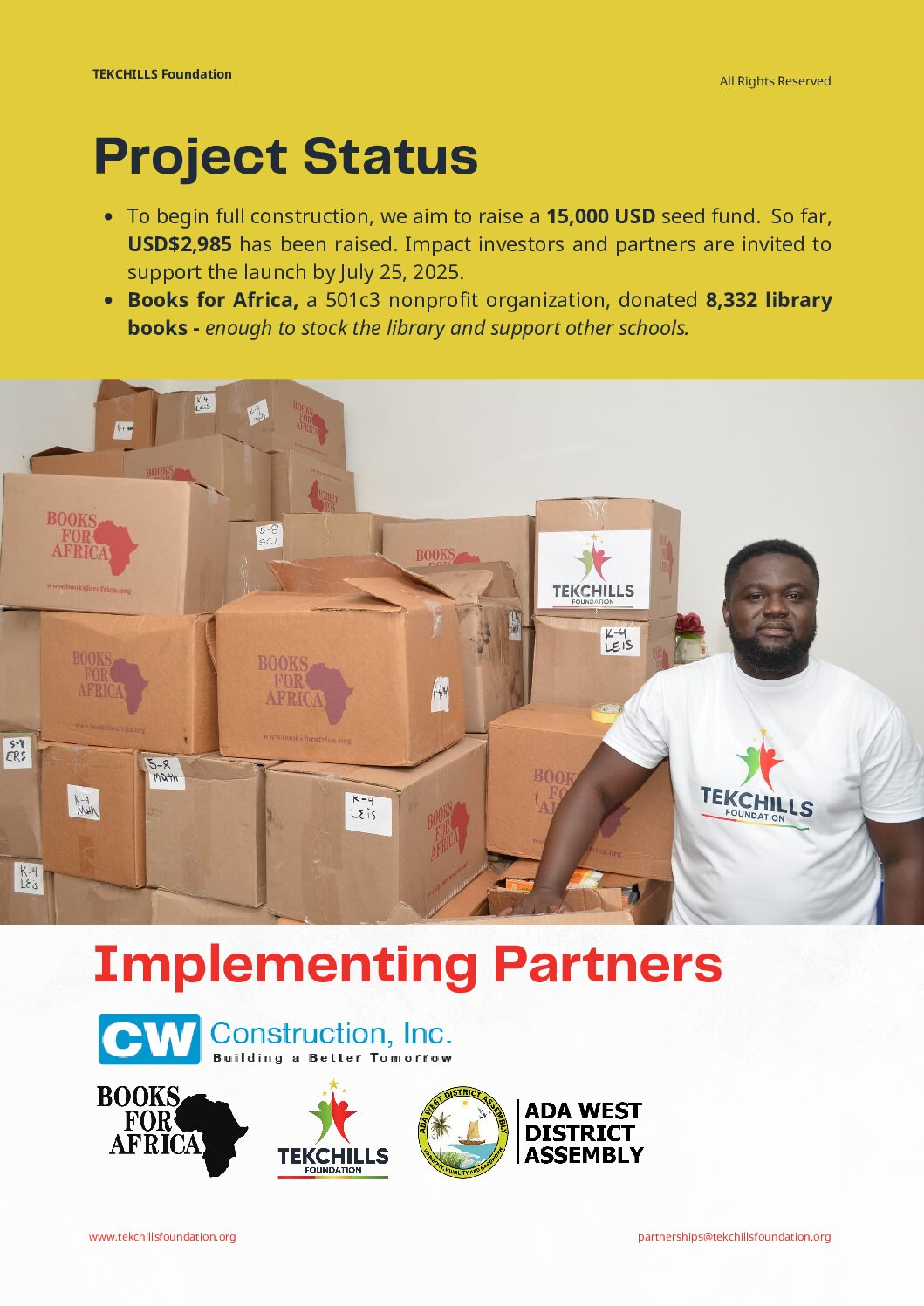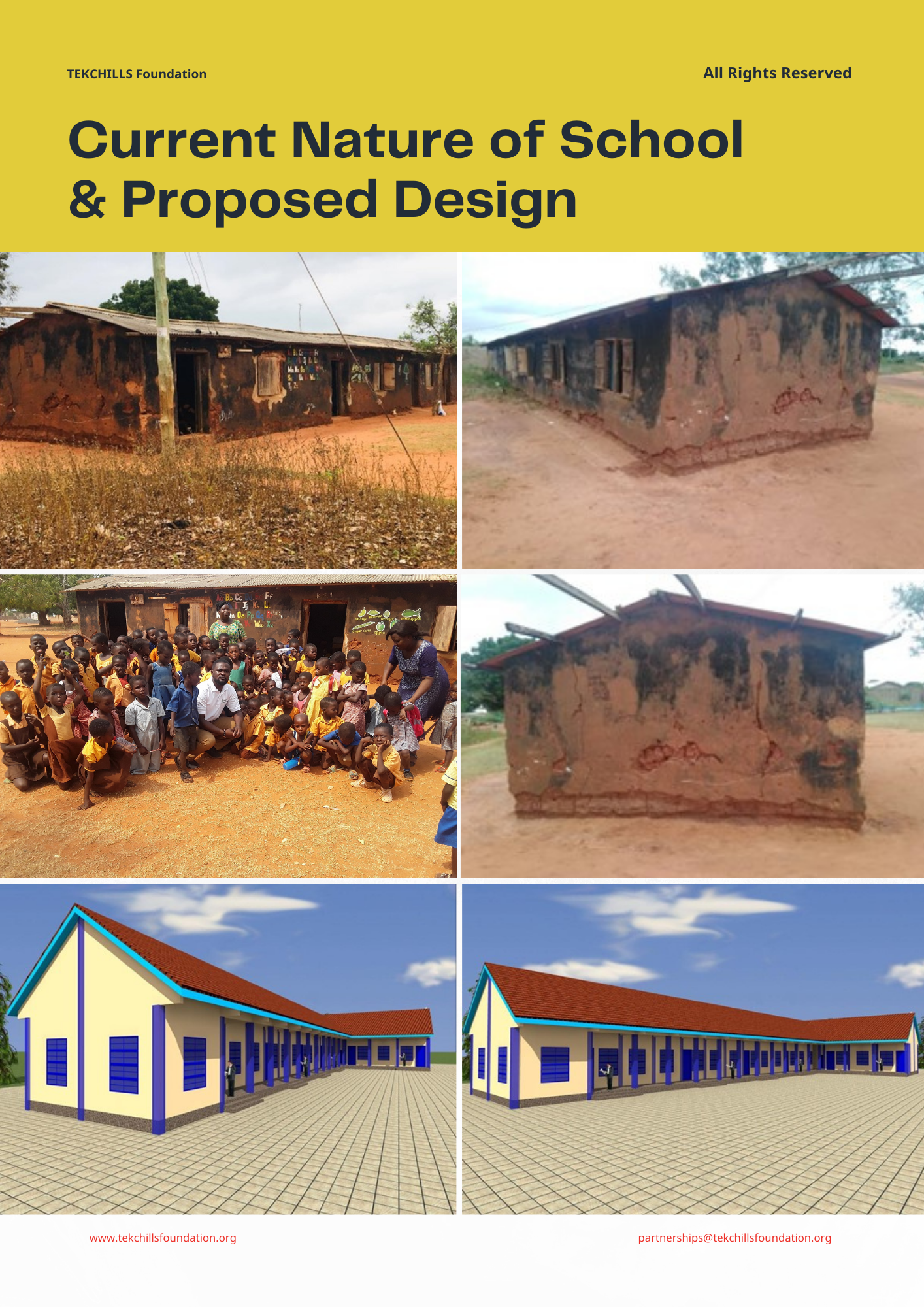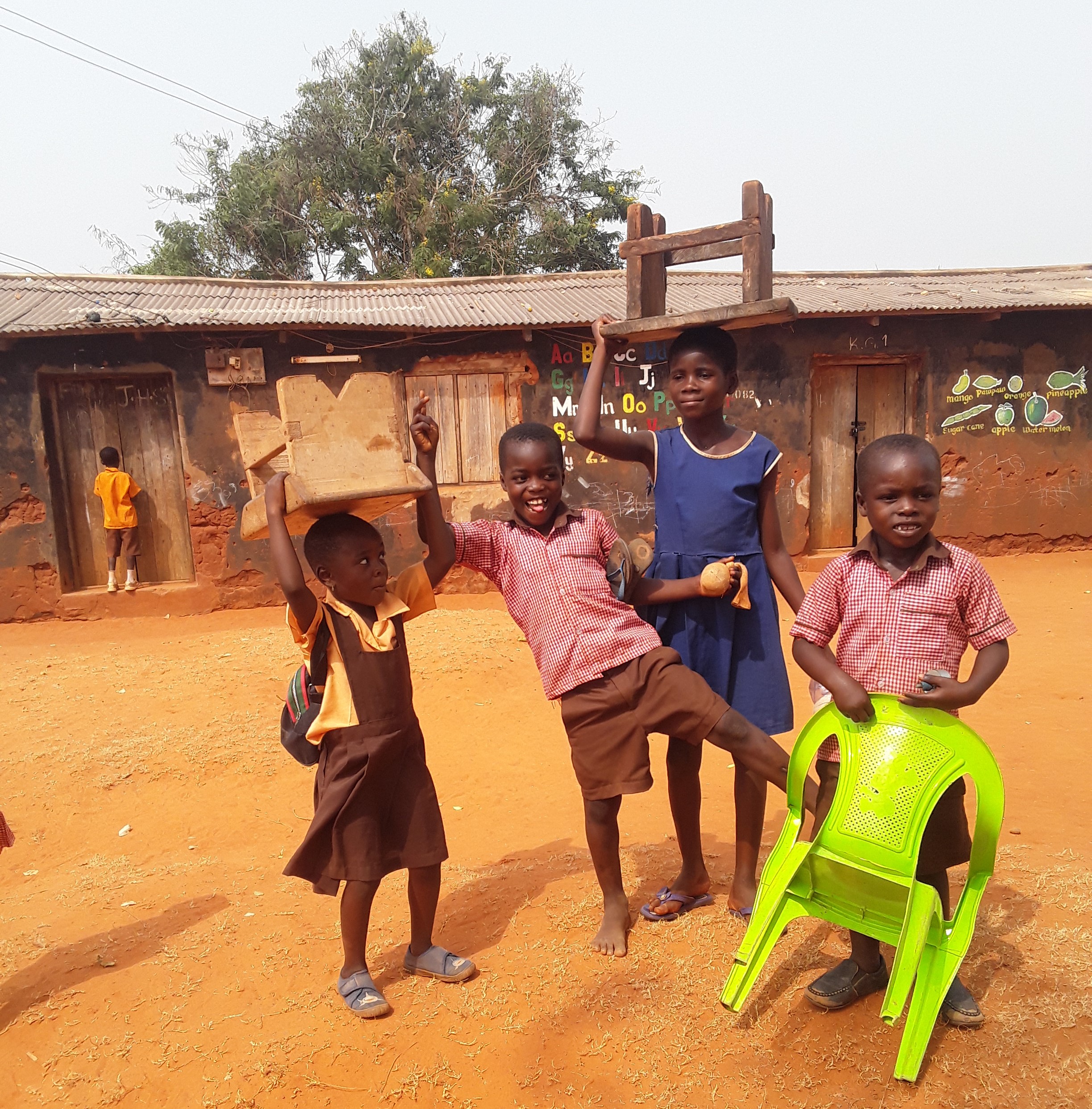Project Summary
The Building Brighter Futures initiative enhances educational infrastructure in Salom, a rural community in Ghana’s Ada West District. It involves constructing a 6-unit classroom block with a mini-library to promote learning and development.
Aligned with UN Sustainable Development Goal 4 (Quality Education), the project creates a supportive learning environment, making education more accessible and appealing. To ensure sustainability, TEKCHILLS Foundation follows a collaborative model, requiring communities to contribute labor costs. Salom was selected for its commitment to investing in its educational future.





